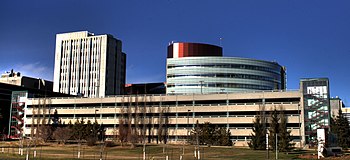Since the launch of the Express Entry immigration selection system in January, 2015, many international students in Canada have faulted the system for making their pathway to permanent residence more uncertain than previously. The number of international students studying in Canada is over 300,000, a figure that is constantly growing. Many of these students are choosing Canada over other developed countries because of certain advantages that studying in Canada can bring, such as access to post-graduation work permits and the potential to obtain permanent resident status, not to mention the quality of education on offer.
Speaking after a meeting with provincial and territorial government representatives last week, Mr. McCallum said he intends to launch federal-provincial talks to reform Express Entry, which was launched by the previous Conservative government. Ideas that have been floated for tweaking the Express Entry system in order to assist international students include giving graduates specific points for education and work experience in Canada.
“We must do more to attract students to this country as permanent residents . . . International students have been shortchanged by the express entry system. They are the cream of the crop, in terms of potential future Canadians,” said Mr. McCallum.
Express Entry and international students
The Express Entry system requires candidates eligible for permanent resident status to make an expression of interest in immigrating to Canada. The government of Canada then invites certain individuals from this pool of candidates to apply for permanent residence using a points-based system.
Presently, a significant number of points are allocated to individuals with a job offer from a Canadian employer or nomination from a Canadian province. In order for the job offer to be valid for the purposes of Express Entry, a positive Labour Market Impact Assessment (LMIA) must be issued. Since its launch, Express Entry has had repercussions for international students wishing to remain in Canada after their studies who, until 2015, typically followed a path to permanent residence that did not require their employer to obtain a LMIA.
Good news for students currently in Canada
Before winning last year’s election, the now-governing Liberal Party pledged to conduct a review of the Express Entry system and make changes, if necessary. The latest remarks from the Immigration Minister have been well received by international students currently studying in Canada, who may note that the department of Immigration, Refugees and Citizenship (IRCC, formerly known as CIC) has been proactive in many areas since the current government came into office just over four months ago.
International students currently in Canada are encouraged to apply for a post-graduation work permit upon completion of their studies in Canada. This will allow them to enter the Canadian labour market and gain valuable work experience for up to three years. The current government, which has been highly receptive to international students’ concerns, has at least three years left on its mandate, so by the time existing international students are working in Canada post-graduation, their pathway to permanent residence is expected to be more straightforward than at present.
Why study in Canada?
“Many international students choose Canada over other potential destinations, such as the United States, the United Kingdom, Australia and France, because of certain advantages that come with studying in Canada. With quality and more affordable tuition at renowned universities and colleges in safe cities, and employment options both during and after the study period, the decision to study in Canada can be life changing,” says Attorney David Cohen.
“If you add to this list of reasons a clear pathway to permanent resident status and, eventually, Canadian citizenship, studying in Canada becomes an even more attractive proposition. I am glad that the current government is focusing on this so early in its term in office, and I anticipate that changes favourable to international students will be brought about before too long.
“Canada wants students because Canada is all about nation building. Young, intelligent newcomers who have proven they have the credentials and means to assimilate should play a significant role in that. Canada wants students to come here, study, contribute socially and economically, and stay permanently.
Canada: a country of diversity and opportunity
Individuals around the world thinking of coming to study in Canada should note that the country is made up of a number of provinces, each of which presents certain advantages for international students. These advantages may be in relation to transfer programs, cost of living, available study programs, employment prospects upon graduation, and available immigration opportunities. To learn more about provinces and locations in Canada as they relate to higher education, click here. Alternatively, choose from the following list of options:
Read more at http://www.cicnews.com/2016/03/canadas-immigration-minister-pledges-permanent-immigration-easier-students-037492.html#03YVb66wJlkkeyHH.99











